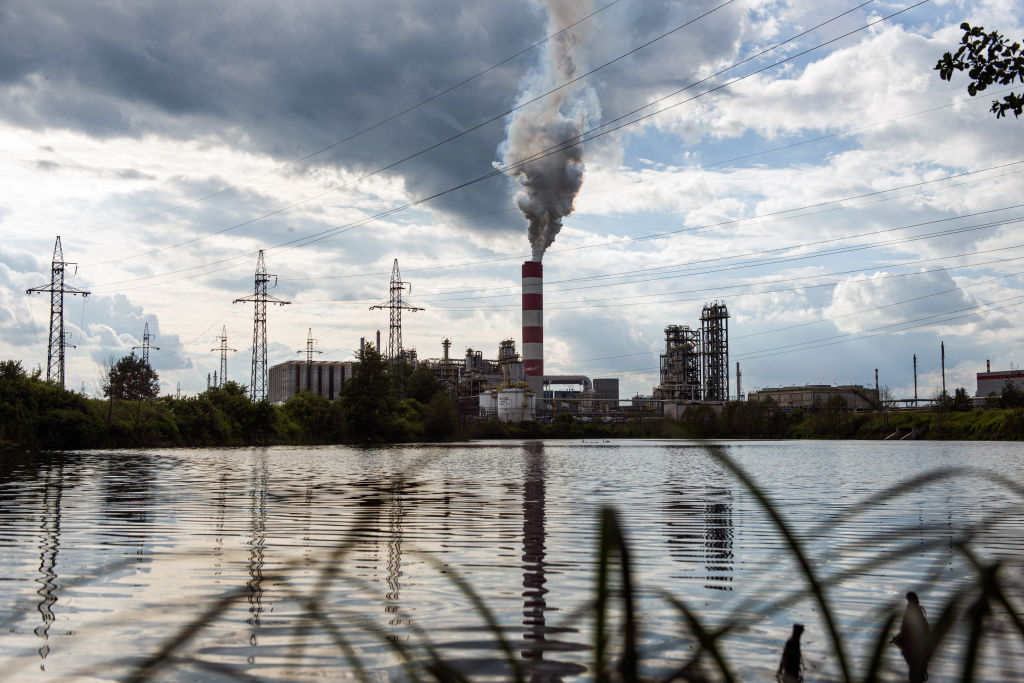U.N. Chief Criticizes ‘Grotesque Greed’ of Oil Companies
[ad_1]
UNITED NATIONS — The United Nations main sharply criticized the “grotesque greed” of oil and gas organizations on Wednesday for making file revenue from the electricity crisis on the back again of the world’s poorest individuals, “while destroying our only residence.”
Secretary-Common Antonio Guterres claimed it was “immoral” that the greatest energy providers in the initial quarter of the 12 months produced merged revenue of close to $100 billion.
He urged all governments to tax these extreme revenue “and use the cash to aid the most vulnerable folks by way of these challenging occasions.”
Guterres urged people today all over the place to mail a message to the fossil fuel industry and their financiers that “this grotesque greed is punishing the poorest and most susceptible people today, although destroying our only popular house, the earth.”
Much more from TIME
The secretary-general spoke at the information conference launching a report by the World wide Disaster Response Group he set up to deal with the triple interconnected crises of foodstuff, electricity and finance which have particularly strike international locations making an attempt to recover from the COVID-19 pandemic and deal with the devastating influence of the war in Ukraine.
Guterres advised reporters that “we are looking at abnormal, scandalous revenue of the oil and gasoline sector in a second in which all of us are shedding money” since of inflation close to 7-8%. And “nothing will be far more common than to tax the too much income … and to distribute that revenue to the most vulnerable people,” he explained.
The crisis team has already introduced recommendations on food items and finance and Guterres mentioned he believes “we are making some progress” in these places, particularly on foodstuff.
The report launched Wednesday focuses on the power crisis, and the secretary-basic reported it aims to attain the equivalent of the grain deal he initial proposed to the Russian and Ukrainian presidents to allow Ukrainian grain to be delivered from Russian-blockaded ports on the Black Sea to earth markets in determined need of food materials. The 1st ship to depart Ukraine was headed to Lebanon Wednesday right after a three-hour inspection in Turkish waters.

A typical check out of the PKN Orlen refinery in Plock, Poland on June 15, 2022.
Attila Husejnow/SOPA Visuals/LightRocket through Getty Visuals
Guterres mentioned speculators and obstacles to receiving grain and fertilizers to world-wide marketplaces all through the Ukraine war despatched meals prices soaring. But given that negotiations on the grain deal “gained traction,” he mentioned, there has been “a substantial fall” and these days rates of most foodstuffs and fertilizers are far more or significantly less at their pre-war selling prices.
“But that doesn’t signify that bread in the bakery is at the similar rate just before the war, for the reason that these are quotations in wholesale marketplaces, some of them related to futures,” he reported, and there are a whole lot of other aspects contributing to soaring selling prices such as transportation and insurance plan fees and supply chain disruptions.
U.N. trade main Rebeca Grynspan, who coordinated the disaster team, stated wheat costs are down pretty much 50% from their peak, corn and fertilizer rates have dropped pretty much 25% in the earlier month and crude oil is now all around $93 a barrel compared to $120 pounds a barrel in June. “Only organic gas has bucked the craze and is continue to higher than a month in the past,” she explained to reporters by video clip from Geneva.
Slipping costs are “good news,” Grynspan reported, but they have been high for way too prolonged and considering the fact that June forecasts for serious poverty have risen by 71 million individuals and forecasts for food insecurity by 47 million.
In another crucial advice, the crisis group urges richer developed nations, especially, to preserve strength together with by cutting down air conditioning and heating use and by endorsing community transport “and character-based remedies.”
Guterres explained new technologies which include storage for batteries “should come to be general public products,” and governments should scale up and diversify supply chains for uncooked supplies and renewable power technologies.
The group also recommends scaling up private and multilateral finance for “the inexperienced electricity changeover.” And it backed the Worldwide Electricity Agency’s aim of raising investments in renewable electricity by a element of seven to meet the purpose of slicing greenhouse gas emissions to “net zero” by 2050 to help suppress man-manufactured local climate alter.
“Today, creating nations around the world are spending close to $150 billion on clean up electrical power,” reported Grynspan, the secretary-general of the United Nations Meeting on Trade and Growth. “They require to devote $1 trillion in investments.”
Extra Should-Study Stories From TIME
[ad_2]
Resource website link








